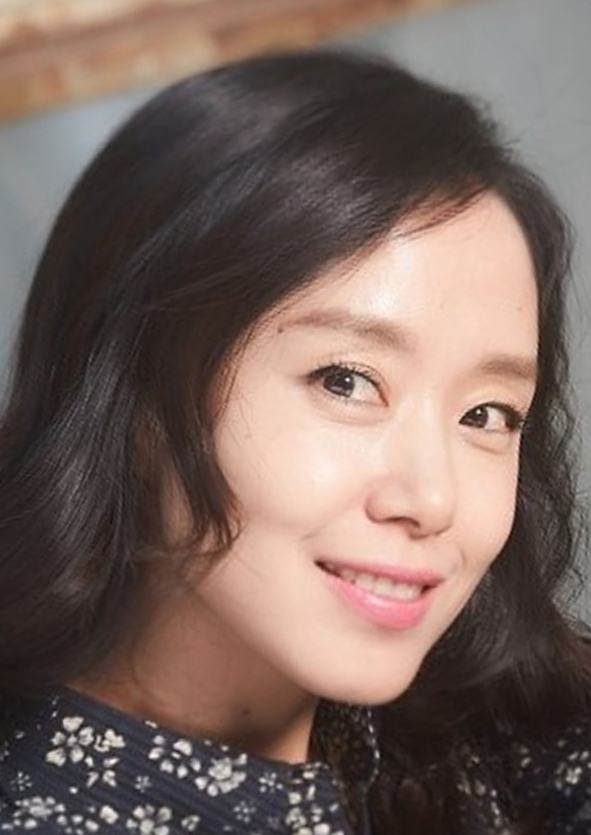Guests Archive / JEON DO-YEON

JEON DO-YEON

Name in korean:
전도연
Name pronunciation:
Jon Do ion
Profession:
Actress
Date of Birth:
11 Febbraio 1973
Gender:
Woman
Biography
Jeon Do-yeon was born on February 11, 1973, and began his career at a very young age in 1990, taking part in numerous television shows. In fact, he owes his initial notoriety to the small screen, which in fact will not abandon even when he reached great cinematic popularity, participating in successful television projects such as Shoot for the Stars (2002) and Lovers In Prague (2005), both for the Korean broadcaster SBS. His career on the big screen began in 1997 with the melancholic and romantic comedy The Contact, and continued with numerous films, thirteen more so far, all characterized by peculiar and different roles, which highlighted his chameleon-like qualities. From the delicate The Armonium in My Memory (1999), which won her the Blue Dragon Award, to the dramatic Happy End, in which she plays the controversial role of a woman who fails to fulfill her role as mother and wife, Jeon strikes a chord with the feminine. She's even engaged in a double role in the imaginative My Mother The Mermaid, and is an AIDS-laced woman in You Are My Sunshine. After the triumph of Secret Sunshine and her personal victory at Cannes 2007, she returns to the cinema with a film, My Dear Enemy, which has the fresh scent of an unconventional romantic comedy, and then throws herself back into the pure auteur film with the controversial remake of the historic Housemaid by the master Im Sang-so, of which she is the undisputed protagonist. He is currently on the set of his 14th film effort, the thriller with obvious dramatic implications The Road Home.
Critique
One of the most long-standing and unresolved issues in the Italian film debate is certainly the lack of real female roles of weight and depth in today's panorama, especially if compared to the great tradition that our cinema can boast and for which it is always remembered and cited: the woman depicted by current Italian films is instead always subjected to stereotypes, harnessed in predetermined roles, with no room for manoeuvre and with few exceptions to the rule. If in the U.S. context this urgency becomes lighter, cinema is overseas a first-rate industry that invoices and produces economy and which must therefore offer the widest possible range of proposals, on our territory where little is done and more and more recourse is made to safe and saleable screenplays, all this does not happen, fueling a proverbial and now sterile and gangrenous controversy. Looking at the contemporary Korean experience, one can feel how their society has chosen differently, thanks to enlightened directors and producers, to tell their stories through women who dominate the scene and who, although often suffer, react when with strength or with a spirit of sacrifice, but in any case do not overlook. Man is more and more on the verge of a nervous breakdown, prey to his own frailties, to his own human failure, mainly inadequate. When he is a father he is often a fugitive, just think of the long series of films of crumbling families with women ready to make any sacrifice to make up for the shortcomings of the other parental figure, who is often not even evoked, but as if erased. And the woman is mostly a courageous woman, capable of holding the strings of her life and the events that involve her, dropped into a series of contexts and borderline situations that highlight her intrinsic and essential qualities. We cannot speak of a novelty, but more than anything else of a change of shot that Korean cinema in the midst of the revolution makes compared to the stylistic features of the past: the mantis woman, a magnificent obsession of classic Korean cinema by symbolic authors such as Kim Ki-young, emancipates herself and comes out of that mental and social constraint that sees her as a witch, femme fatale or, to use Kim Ki-young's words, "Insect", "Water lady", Woman of Fire", becoming a mostly positive, or at least effective, decision-making element even when fallible and never, in a predetermined and specious way, an element of diabolical and disturbing disturbance for its own sake. If there is an actress who more than anyone else has shown that she knows how to respond to this new urgency with an innate ability to adhere to this new axiom of the current Korean story, that is Jeon Do-yeon, and it is no coincidence, as in an ideal closing of the circle, it is she herself who will give new life and interpretation to what had been the favorite nagging of Kim Ki-young himself, that Housemaid that occupied him for many films and which was his greatest success and the bulwark of his personal philosophy of interpretation of Korean society of that period. Muse of great masters such as Lee Chang-dong, with whom and thanks to whom she was honored with the award for Best Actress at the Cannes Film Festival in 2007 unique and alone among oriental performers, but also a great inspiration for young talents, Jeon Do-yeon has crossed the new wave of Korean cinema, riding it and leaving her mark. Thanks to an uncommon versatility, she has played an incredible variety of characters, all linked by the red thread of great willpower and intensity that she herself, thanks to a great and histrionic talent, has been able to infuse in him. Considered a female alter-ego of Song Kang-ho, with whom she starred in the Secret Sunshine that saw her triumph at Cannes, Jeon has always shone since her debut with The Contact for her ability to emerge and dominate her co-stars, thanks to an acting and dramatic charge far superior to that of the other actresses of her generation, which has also grown over the years. Films such as You are my sunshine, Untold Scandal or, indeed, The Housemaid, highlight her extraordinary acting skills, making her an essential element for contemporary Korean cinema, and an added value for any film in which she is the protagonist. To date, only fourteen films can boast of his presence, a small number that even more indicates a desire to determine one's own artistic existence without giving in to the compromise of comfort: An extremely concrete and ambitious woman, she does not accept to flatten herself in the comfortable bed of the most congenial interpretation, of the genre that fits her like a glove, but experiments, recreates herself, puts herself on the line, changes her face, transforms herself, becomes from time to time another from herself, immersing herself with extreme naturalness in the game of parts, I am the one who believes me: So it is if you like. His ability to adapt is, by his own admission, the result of that gym often criticized by cinephile-inspired purists that is the television series, a genre that over the last few years has been renewed, especially in the United States, finding new fans and often expressing itself in a more valuable way than cinema itself, but which in the 90s that saw Jeon Do-yeon acting in front of the red light of the camera for the first time, He still had a bad reputation. Experienced as the killing of high-level acting, the tomb of stage art and acting credibility, television does not present itself as the ideal springboard for a truly talented actress like Jeon Do-yeon evidently is. The lack of classical studies, and no experience on the wooden tables of the theaters, foments mistrust and provides alibis for detractors. But Jeon is tough and doesn't let herself be affected by the perplexities of others, and when Myung Film's proposal arrives, she doesn't think twice and throws herself headlong into the lion's den with a melancholic and romantic film like The Contact, by Chang Yoon-hyun. Her interpretation conveys all the loneliness and fragility of a woman who is also that of an entire generation, which comes out of the film confused and lost, strenuously tied to slender human and love relationships that become inconsistent, rarefied, only imagined. The weakness of Su-heon (Jeon Do-Yeon) is only presumed and it is she who becomes the only real actor in the story, as if to underline this sense of decisiveness that the feminine brings with it. The mechanism she triggers unhinges an emotional and action stalemate that is now unbearable and gracefully revolutionizes the destiny of Dong-hyun (a Han Suk-gyu who was her colleague in Jeon Do-yoon's first TV Serial, Our Paradise). If her ability to pull and orient the story is highlighted and expressed more and more in the following A Promise by debutant Kim Yoo-jin, where she is called upon to represent the positive factor in a couple where the man is a failure because he is diverted by the underworld, it is with her subsequent film that the strength of Jeon Do-yeon is felt not only as an actress but also as a conscious and determined woman, who chooses an uncomfortable path and interpretative proposal. In fact, we were talking about how the woman of today's Korean cinema is often a courageous mother, just think of films such as Mother by Bong Joon-ho, or Poetry by Lee Chang-dong himself that will make her shine on her male alter-ego in Secret Sunshine. But Jeon Do-yeon, as the architect of her own destiny and allergic to all kinds of clichés, challenges the archetype of the heroic woman that we have just highlighted as a leitmotif of Korean cinema, mainly auteur, and transfers all the fragility of the feminine to the screen, without however making her women lose that scenic and narrative predominance that only she in the cinematographic panorama of her country with such determination manages to bring out. The first example of this once again subversive tendency is his fourth film, Happy End, Jung Ji-woo's directorial debut that comes immediately after a film with rather classic dynamics such as The Harmonium in My Memory. If in the latter it is a girl who finds herself fighting with a rival to guarantee herself the exclusive affection of a man, here the situation is reversed and it is Bora (Jeon Do-yeon), at the top of a love triangle that she herself has set up. Happy End, right from the title that ironically preludes a bitter ending, is a film with a misogynistic allure that paradoxically, however, leaves the scepter to a Bora, which, although destined to leave the scene, maintains its supremacy over history until the end. Here the inadequacy of the masculine, which makes the man a real laughing stock, is rewarded by a shocking epilogue, which tries to redetermine the social dynamics that a woman so far from the angel of the hearth has subverted. Although in this blatant criticism there is hostility towards a woman who has unduly placed herself in a usually male faithless condition, Jung Ji-woo who directs her is unable to keep Bora-Jeon Do-yeon in a regime of submission even when objectively she is no longer on stage. The charm she exudes almost justifies her hateful acts, and it is Jung himself who seems to be enchanted by her, making her the master of the scene, filling the shots of her and her troubles as an imperfect, incomplete and guilty woman. Choi Min-sik, her partner in the film and also at the dawn of a career that will soon see him famous with memorable films such as Park Chan-wook's Old Boy and Im Kwon-taek's Drunk on Women and Painting, generously gives way to her, letting Jeon emerge in all the shades of woman, as a fragile and tormented element, but also how to be aware and determined. Happy End thus marks a fundamental point in favor of Jeon Do-yeon, tracing a complex path in her career, and constituting a precedent that cannot be ignored for the subjects and scripts that she will later be called upon to evaluate and choose. Two years later it was time for Jeon Do-yeon to repeat the experience of a romantic comedy with I Wish I Had a Wife, of a similar extraction to The Contact that launched it, but it is immediately after, the following year, that Jeon once again surprises and changes direction with an atypical action film. No Blood No Tears by Ryoo Seung-wan, is in itself a women's film, where the undisputed protagonists are two shrewd and prevailing women. The conflict, if we can speak of conflict, is therefore internal and generational, but it is also, even more so the one between them, a female association against the masculine. It is not a matter of trivial supporting character for these two women who appropriate a traditionally masculine gender and handle it with care and credibility, but of real domination of the story. For her part, Jeon holds up very well with her colleague Lee Hye-young, more experienced than her and bearer of a form of femininity, the unscrupulous one and at the same time subservient to a male desire that saw her debut with Beetween the Knees, which is also the one that sees her as Queen Bee, and therefore morally and immediately questionable and condemnable as well as subjected to the ideal and physical yoke of man. In this, Jeon is the new that advances, the first bulwark of the renewed trend, a relay runner who picks up the baton. But Jeon Do-yeon is once again not interested in demonstrating any militancy or declaration of intent at all costs, and lets this experiment happen to something far more classic. After the unprecedented experience of No Blood No Tears, Untold Scandal puts it back on the track of traditionality, with the genre of Korean national pride, the one that reveals to the world and to Koreans themselves the customs and traditions of the country and the dynamics of the long Chosun era, albeit here through the adaptation of a novel with clear European roots. Untold Scandal therefore gives Jeon Do-yeon a more institutional and less transgressive interpretation in terms of acting autonomy, but no less worthy of value or consideration. Lee Jae-young directs a tale of palace intrigue and sumptuous dresses, with cinematography, care for representation and aestheticized eroticism that push Untold Scandal to the box office and increase Jeon Do-yeon's popularity, a popularity that ferries her towards one of her most famous and representative works My Mother The Mermaid, one of the films in which Jeon Do-yeon's natural talent is most expressed, is a technically virtuous and demanding experiment, which reveals all his acting potential. Jeon then returns to be directed by that Park Heung-shik who had already wanted her in I Wish I Had a Wife, and she does so with a new awareness and an imaginative and bizarre film always on the edge of sentimentality and with a specific vocation for the investigation of the dynamics between man and woman, which have now proverbially become dear to her. In My Mother The Mermaid Jeon is called upon to double and double at the same time, elevating her interpretation to power. In the dual role of mother and daughter, Jeon embodies the two social realities of the Korean woman of yesteryear and of the emancipated and modern one, acting as an ideal glue between the two cultures. After this almost intimate and familiar interlude that Park Heung-shik offers her, Jeon prepares for a new test as an actress. You Are My Sunshine is the return to an "uncomfortable" character, multifaceted, full of contradictions and failures and pain, and is the perfect prelude to what will be "the character" of Jeon Do-yeon, that Shin-ae that will become a cross and a delight for her in a very short time. Secret Sunshine is in fact the apotheosis of this new directive that we have talked about a lot at the beginning, this glorification of women and their ability to re-emerge from tragedy and renew themselves, resurfacing from the ashes of despair and total despair like a phoenix. The dialectic with Song Kang-ho, an excellent interlocutor who, however, Lee Chang-dong himself chooses to marginalize, makes Jeon Do-yeon and his woman deeply dramatic and tormented, winning despite the mourning and doubts he finds himself facing. Shin-ae (Jeon Do-yeon) is marred by the most unspeakable tragedies, in a spiral of pain that seems, on Lee Chang-dong's part, a cynical and unscrupulous rage, but she is above all the one capable of undergoing a purifying catharsis that is also the abandonment of one's own anchors of spiritual salvation, an authentic tabula rasa. Beyond certain criticisms leveled at the film in the aftermath of its presentation, for her it was immediately successful, it was immediately fame, it was immediately triumphant. Cannes acclaimed her and elected her best actress of the edition, and the world critics pointed her out as a pearl and pivotal element of the film, beyond what are the alleged weaknesses of the film. And vertigo, the sense of bewilderment is inevitable Living up to the expectations that such an award imposes is a difficult experience. Thanks to an international recognition of such proportions, Jeon becomes a true inspiration and heroine of an entire continent, the leader of that Korean film wave that today reaches its peak and that is valid for an entire East. It is a heavy burden, similar to the one that many Oscar winners carry with them, often being crushed by the weight of the expectation of others and by the impossibility of replicating with knowledge and premeditation such an unexpected and apparently imponderable event. Jeon thus decides, partly out of recklessness, partly to exorcise, partly not to fall into the trap of waiting, to totally and again change the course of her filmographic path, entrusting Lee Yoon-ki with the thankless task of sweeping away the mystical aura that Secret Sunshine had given her. And My Dear Enemy is the most unpredictable, but at the same time the most fitting response to what is an induced performance anxiety, which tries unsuccessfully to assault it and tries to crush its path. A low profile is expressed by the choice of a film like My Dear Enemy, which once again shows how Jeon Do-yeon does not want to feed on the media upheaval at all, perhaps trying to turn it in his favor, but rather wants to bring the discourse back to the concrete level of acting. Her role is indicative, because she seems to fully adhere to what is her style as a woman and actress, a dry, no-frills style, of a pragmatic woman who does not let herself be enchanted by the flattery and the moines of others, whether these are those of an adoring public and critics, or those of a penniless and unreliable ex-boyfriend like Byung-woon (Ha Jung-woo). This is his fourth work, he has made his way into the Korean film scene with moderately successful films such as Love Talk, Ad-lib light and This Charming Girl, winner of the Grand Jury Prize at the Sundance Film Festival in 2005. With the experience gained and the excellent directing ability, he intercepts this need of Jeon Do-yeon and does not idolize it or oversize it in directing it, but helps it to demystify itself. In this game of normality, in this atypical road-movie in which substantially little happens, it is precisely the alchemy and the perfect counterbalance between Jeon and his old acquaintance Ha Jung-woo that sustains the narrative, not her who predominates, but they, together, who lead. That her character is, by necessity, the potentially winning one lies in the game of parts that Lee Yoon-ki has concocted, but as the rigidity decays and the tender weaknesses of this tough woman are glimpsed, it is there that even the initial dominance is lost. And My Dear Enemy succeeds in the feat of making most people set aside the successes achieved with Lee Chang-dong and, once the proverbial ice of the post-Secret Sunshine has been broken, Jeon Do-yeon has now exorcised the danger of running into a highly typed character and can therefore still abandon himself to the unpredictability of another unconventional woman. But even before that, he has to deal with one of the cornerstones of classic Korean cinema, taking charge, together with Im Sang-so, of a controversial reinterpretation of The Housemaid, a work considered almost untouchable, by the master Kim Ki-young. Together they overturn the already mentioned axiom of the woman who, thanks to the ruthless game of seduction, lures the man into her coils and crushes him, but returns the burden of guilt to the male and his loss of morals, and to the ruthless cynicism that dominates in certain strata of society. The Housemaid is in fact a film that, as happened with its illustrious predecessor, wants to tell the story of today's Korean society and its changes beyond the prurient story that is at the center of the narrative. Jeon Do-yeon reinventing his servant girl and making her submissive and submissive perfectly renders Im Sang-so's desire, thus providing a contemporary transposition of a timeless story. As had already happened with Lee Chang-dong's work, this The Housemaid also collects discordant opinions, opinions that, however, as in the previous case, become a unanimous chorus in proclaiming once again Jeon Do-yeon the fixed point of the film thanks to its indisputable value. Strengthened by this now acquired confidence, even the most commercial and less committed choices are for Jeon Do-yeon an exercise in style that can be attended without fear or hesitation. And this is how, from this point of view, the choice of the film that succeeds The Housemaid is inscribed. Countdown is a divertissement, a game of disguises, real and ideal, in which the hybrid and chameleon-like nature of Jeon Do-yeon is expressed in a very playful and powerful way. It is she herself Cha Ha-yeon that Jeon plays who is the enigma, the impalpable fraudulent and unscrupulous anti-heroine, capable of mocking the feelings of a man, her partner and alter-ego Jung Jae-young, aka Tae Gun-ho, even the most tender and profound ones of a wounded father. Getting rid of the responsibility of having to become a moral witness to the story in this case benefits her, leaving her the possibility, for once, to have light-hearted fun with her character and to demonstrate, once again, her ability to shun glorification and external interference, to abandon herself instead to the pure game of masks. And once again, having metabolized the experience, Jeon doesn't stop. Very little is known about The Road Home, which at the time of writing is still in the first phase of production, except that once again a film has chosen to make use of the centrality of Jeon Do-yeon, his powerful stage presence, and his always being "One None and One Hundred Thousand", to guarantee, already on paper, a great success.




